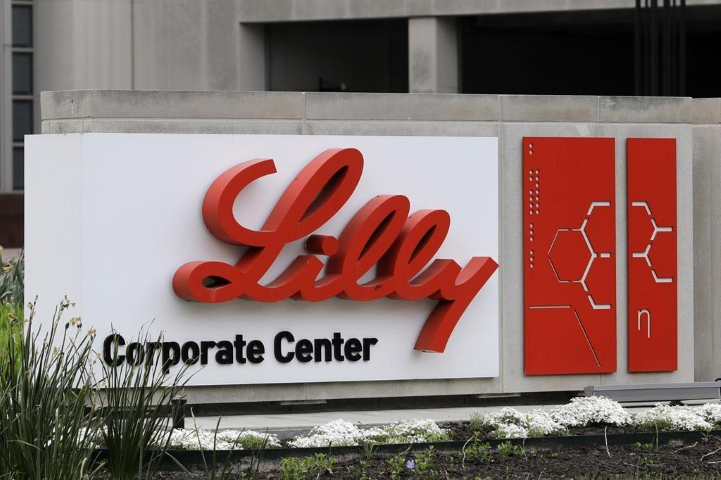
A sign for Eli Lilly & Co. sits outside their corporate headquarters in Indianapolis on April 26, 2017. Federal regulators are putting off a decision on Eli Lilly’s potential Alzheimer’s treatment with an unusual request to have an advisory committee examine the drug. Lilly expected a decision on donanemab in this year’s first quarter, which ends this month. But the drugmaker said Friday, March 8, 2024, that the Food and Drug Administration wants more information about donanemab’s safety and effectiveness. (AP Photo/Darron Cummings, File)
Federal regulators have deferred a decision on whether to grant approval for an Alzheimer’s drug developed by Eli Lilly, opting for an unusual step of seeking input from external advisors to assess the treatment.
Initially, Eli Lilly anticipated that the Food and Drug Administration (FDA) would finalize its decision on donanemab's approval by the month's end. However, the drug manufacturer announced on Friday that the agency now requires additional details regarding the drug's safety and efficacy, delaying the decision.
No specific date has been scheduled yet for the advisory committee meeting, a process often invoked by the FDA for reviewing drugs that represent a novel class of treatments. Donanemab, if greenlit, would follow Eisai’s Leqembi, approved last year, and Biogen’s Aduhelm.
Anne White, Executive Vice President of Eli Lilly and Co., expressed confidence in donanemab’s potential, affirming that the Indianapolis-based company is committed to collaborating with the FDA in providing the necessary information.
The FDA’s request stems from its interest in delving deeper into a pivotal study conducted by Lilly on the drug. The late-stage, 18-month study revealed that patients administered donanemab experienced a 22% slower decline in memory and cognitive abilities compared to those who received a placebo infusion, translating to a delay of approximately four to seven months.
Patients discontinued the drug once their brain plaque reached minimal levels, a milestone most patients reached within a year. Donanemab represents the second drug proven to significantly postpone cognitive decline in Alzheimer’s patients, following Leqembi.
Earlier this year, Biogen announced halting the sale of Aduhelm. Both the Lilly drug and Leqembi target mild or early-stage dementia resulting from Alzheimer’s, aiming at reducing sticky amyloid plaque accumulation in the brain. However, they come with potential serious side effects, including brain swelling and bleeding, necessitating careful monitoring. Notably, approximately a quarter of donanemab recipients exhibited signs of swelling, while around 20% experienced microbleeds.















